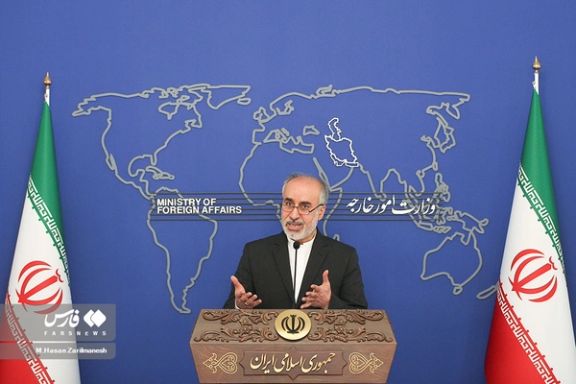Kanaani said, "The organizers and hosts of the conference are deviating from its founding principles, transforming it into a platform for advancing their own agendas. The inclusion of individuals with a criminal past, contrary to global norms, reflects a troubling trajectory for this conference, and we harbor reservations about its future."
Banned along with Russia, Kanaani said the conference "has become a forum for disseminating unjust and deceitful narratives against sovereign nations."
The Islamic Republic is outraged over the presence of prominent Iranian activist Masih Alinejad in the event who was one of many calling for the designation of Iran's Revolutionary Guard (IRGC) as a terrorist organization after multiple failed assassination attempts on her life.
Despite Iran's absence from the conference for the second consecutive year, discussions at the prestigious event centered on the global fight against terrorism, Russia and Iran still top of the agenda. Approximately 50 heads of state and government, along with around 100 ministers, participated in the conference, where Tehran and Moscow were notably absent from the guest list.
The conference occurred against the backdrop of Iran's proxy warfare through militias in the Middle East, collaborating with groups like Hamas, which perpetrated an assault on Israel on October 7, resulting in the deaths of over 1,200 predominantly civilians, and the capture of over 250 people into Gaza.
Iran's exclusion from the conference stems from violent protests in 2022, triggered by the death of 22-year-old Mahsa Amini while in custody of Iran's hijab police. The demonstrations posed significant challenges to the clerical regime, marking one of the most significant uprisings since its establishment 45 years ago.









